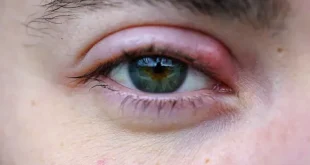The U.S. Food and Drug Administration (FDA) has recently issued a strong warning against the use of two specific eye drop products due to serious health risks. This alert has raised concerns among consumers, especially those who rely on eye drops for relief from various eye conditions. In this article, we will explore the reasons behind the FDA’s warning, the potential health risks, and what alternatives are available for consumers.
What Eye Drop Products Are Affected?
The FDA’s warning focuses on two brands of eye drops that have been linked to severe health complications. While the specific names of the products are important, the underlying issue is even more critical: the safety and effectiveness of over-the-counter (OTC) eye drops. These products are commonly used for relief from conditions such as dry eyes, allergies, and infections.

Reasons for the FDA’s Warning
The FDA’s decision to issue a warning about these eye drops is based on multiple reports of serious health risks associated with their use. Here are some of the main reasons why these products have come under scrutiny:
1. Contamination Issues
One of the primary concerns is the risk of contamination in these eye drops. Contaminated products can introduce harmful bacteria or other pathogens into the eye, leading to severe infections. In extreme cases, these infections can result in vision loss or even permanent damage to the eye.
2. Adverse Reactions
Reports have indicated that some users experienced severe adverse reactions after using the affected eye drops. These reactions can range from mild irritation to serious complications that require medical intervention. The FDA has emphasized that consumers should be vigilant about any unusual symptoms following the use of these products.
3. Lack of Regulation
OTC eye drops are not as strictly regulated as prescription medications, which can lead to quality control issues. Some manufacturers may cut corners in production, leading to unsafe products making it to market. This lack of regulation raises serious questions about the safety of certain eye drop brands.
4. Recalls and Safety Alerts
In light of these issues, the FDA has initiated recalls and safety alerts for the affected products. These actions are meant to protect consumers and prevent further harm. It’s essential for users of these eye drops to be aware of these recalls and to stop using any affected products immediately.
What Are the Potential Health Risks?
Using contaminated or unsafe eye drops can lead to a range of health issues. Here are some of the most serious risks associated with these products:
1. Eye Infections
Contaminated eye drops can lead to bacterial or fungal infections. Symptoms may include redness, swelling, and discharge. If left untreated, these infections can cause significant damage to the eye, including corneal ulcers and permanent vision loss.
2. Allergic Reactions
Some individuals may experience allergic reactions to the ingredients in certain eye drops. Symptoms can include itching, swelling, and redness. In severe cases, these reactions can escalate to anaphylaxis, a life-threatening condition that requires immediate medical attention.
3. Chemical Burns
Improper formulation or the presence of harmful ingredients can lead to chemical burns in the eye. Symptoms of chemical burns can include severe pain, blurred vision, and sensitivity to light. Immediate medical attention is crucial to minimize damage.
4. Long-term Effects
Prolonged use of contaminated or unsafe eye drops can lead to chronic eye issues. Even after ceasing use, individuals may experience ongoing symptoms such as dryness, irritation, or sensitivity.
Alternatives to Affected Eye Drops
If you have been using the affected eye drop products, it is essential to switch to safer alternatives. Here are some recommendations:
1. Prescribed Eye Drops
Consult your eye doctor for prescribed eye drops tailored to your specific needs. These products are subject to stricter regulations and quality control measures, making them a safer choice.
2. Artificial Tears
For those suffering from dry eyes, artificial tears can provide relief without the risks associated with the affected products. Look for preservative-free options to minimize irritation.
3. Allergy Relief Drops
If allergies are the cause of your eye discomfort, there are allergy relief drops available that are considered safe and effective. Again, consulting with a healthcare professional can help you find the right product.
4. Lifestyle Changes
In addition to using the right eye drops, consider making lifestyle changes to improve your eye health. This could include reducing screen time, taking regular breaks, and ensuring proper hydration.
How to Stay Informed
Staying informed about product recalls and safety alerts is crucial for consumers. Here are some tips on how to keep up to date:
1. Follow FDA Alerts
The FDA regularly updates its website with information about recalls and safety warnings. Subscribing to these alerts can help you stay informed about any changes related to eye drop products.
2. Check Product Labels
Always read the labels on eye drop products before use. Look for any warnings or recalls and consult with your pharmacist if you have questions.
3. Consult Your Healthcare Provider
If you have any concerns about the safety of your eye drops, don’t hesitate to reach out to your healthcare provider. They can offer guidance and suggest safer alternatives.
4. Educate Yourself on Eye Health
Understanding common eye conditions and their treatments can empower you to make informed decisions. Research reputable sources and consult with eye care professionals to improve your knowledge.

Conclusion
The recent FDA warning regarding specific eye drop products highlights the importance of safety in over-the-counter medications. Contaminated eye drops can pose serious health risks, including infections and allergic reactions. By staying informed and seeking safer alternatives, consumers can protect their eye health and ensure they are using safe products. Always consult with healthcare professionals if you have concerns or questions about your eye care routine. Your eyes are a vital part of your overall health, and taking care of them should be a top priority.
